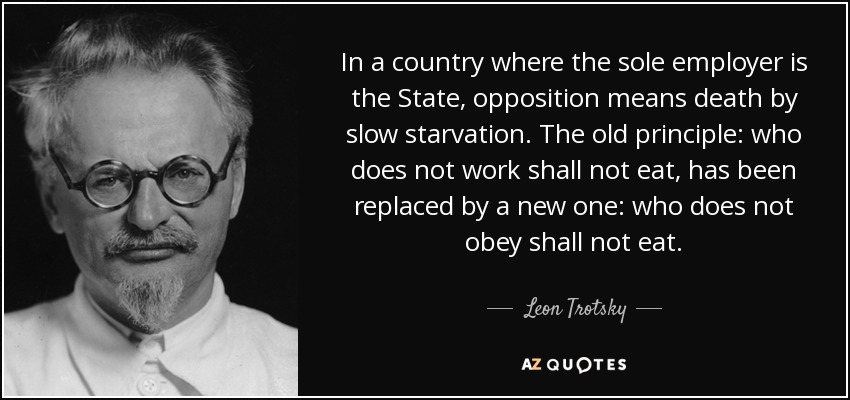Two articles caught my attention by looking behind the curtain seeing intentions obscured by appeals to Zero Carbon. First Chris Talgo writes at American Thinker Climate Alarmism is the existential threat to humanity. Excerpts in italiics with my bolds and added images.
While in France observing the 80th anniversary of D-Day and honoring the thousands of brave soldiers who gave their lives fighting the existential threat that was Nazi Germany, President Joe Biden could not help himself from descending into crass political talking points by comparing the most destructive and deadly war in human history to climate change.
“The only existential threat to humanity, including nuclear weapons, is if we do nothing on climate change,” Biden declared. Due to the “existential threat of climate change, which is just growing greater, we’re working together to accelerate the global transition to net-zero. It is the existential threat to humanity,” Biden reiterated.
In reality, climate change is nowhere near an existential threat.
In fact, in many ways, the slight warming that has occurred over the past half century or so has made life better for humanity. For instance, NASA satellite data show a significant rise in global plant growth in recent decades — what some call global greening. A slightly warmer planet is also beneficial because it produces greater crop yields.
However, one can make a compelling argument that climate alarmism,
and the policies that climate alarmists support,
actually comprise an existential threat to humanity.
1. End Fossil Fuels On Which Modern Life Depends
First and foremost, climate alarmists are hellbent on ending the use of affordable and reliable energy in the form of fossil fuels. This alone is a horrendous stance that puts millions of lives at risk.
Like it or not, the advent of fossil fuels, namely oil, coal, and natural gas, has been the biggest boon for humanity in all of history. The harnessing of these resources to supply virtually unlimited energy in cost-effective terms has raised billions of people from abject poverty.
Without ample access to fossil fuels, our modern way of life would literally cease to exist. Not only do fossil fuels provide abundant and affordable energy. As the U.S. Department of Energy notes, “Petrochemicals derived from oil and natural gas make the manufacturing of over 6,000 everyday products and high-tech devices possible.”
2. Rely on Renewable Energy, A Poor Substitute

Second, climate alarmists demand that the world immediately transitions to so-called renewable energy and achieve net-zero carbon dioxide emissions. The problem is that renewable energy from solar panels and wind farms is too expensive, unreliable, and not nearly scalable. If the world were to shun fossil fuels in favor of wind and solar, the amount of energy available to use would plummet. This would result in devastation across many fronts.
3. Diminish Human Populations and Livelihoods

Third, climate alarmists constantly call for degrowth, both in terms of the economy and in terms of population. Somehow, the climate alarmists have convinced themselves that the solution to the nonexistent problem of a slightly warming planet is for humanity to cull its population growth. This is extremely short-sighted and fails to consider that many developed countries are currently experiencing a stark population decline. If this is not reversed, and soon, many of these once-thriving nations will experience severe demographic problems.
Likewise, calls for economic degrowth, which has been a cause célèbre among climate alarmists for many years now, would wreak havoc and would instantly result in decreased living standards for billions of people. This is especially true for several developing countries, which are banking on economic growth and increased prosperity to lift billions from poverty.
4. No More “Better Things for Better Living”
Fourth and finally, climate alarmists, whether they realize it or not, are akin to modern-day Luddites because they excoriate innovations and technological breakthroughs. In many ways, climate alarmists are the opposite of progressives because they seek to regress humanity back to a time when creature comforts and access to the latest and greatest technologies were limited to a select few rather than accessible to the masses. Even worse, by hindering the development of new technologies that could solve some of the world’s most vexing problems simply because it does not align with their worldview, climate alarmists are essentially preventing the betterment of the human experience.
Fortunately, it seems like the climate alarmists are losing ground. Polls show that more and more people are skeptical of the constant fearmongering and are becoming aware of the failed doomsday predictions. This is great news, but it is just the start. Unless and until there is a general consensus that climate alarmism is the problem and that the misguided policies supported by climate alarmists are outright rejected by an overwhelming majority, climate alarmism will remain a grave threat to the future of humanity.
The second article is by David Wojick writing at CFACT A Socialist tract on fast decarbonization from the National Academies. Excerpts in italics with my bolds and added images.
The title of this 800 page tome is “Accelerating Decarbonization in the United States: Technology, Policy, and Societal Dimensions” from the US National Academies of Science, Engineering and Medicine (NASEM).

I seldom use the term “socialist” but it is the perfect word here once the concept is updated. It originally referred to government ownership of the means of production. But in today’s Regulatory State, ownership is not required for control so it means government control of production, or more broadly government control of both production and use.
In this case it is government control of the production and use of what they call “the energy system.” Since everybody uses energy this includes control of everybody. Under the proposed system the government does not serve people it “manages” them, or at least their use of energy which is a lot of what we do.
They are however rather confused about this. The very first sentences state their basic assumption which is wildly false. They say this:
“The world is coalescing around the need to reduce greenhouse gas (GHG) emissions to limit the effects of anthropogenic climate change, with many nations setting goals of net-zero emissions by midcentury. As the largest cumulative emitter, the United States has the opportunity to lead the global fight against climate change. It has set an interim emissions target of 50–52 percent below 2005 levels by 2030 toward a net-zero goal.” (All quotes are from the Executive Summary.)
The United States has set no such targets. The US is a big country with hundreds of millions of people so it does not set targets. Perhaps they mean the US Government but Congress has set no such targets. In fact these so-called targets are merely the wishful thinking of the Biden Administration and their radical net zero colleagues which apparently include the National Academies. And if a Republican wins the next election it will not even be a Presidential wish.
So there is much less here than meets the eye. This tome is basically a radical socialist manifesto and that is how it should be read.

The funding is surprising. NASEM studies used to be done at the request of Congress or Federal Agencies and funded by them since objectively advising them is supposed to be the job of the Academies. Instead this work was funded by a collection of Foundations, presumably left wingers. So the National Academies are for hire by those with radical causes.
The socialist management thrust is exemplified by this topic
which is listed as a central theme:
“Managing the Future of the Fossil Fuel Sector.”
Only under socialism is this a government function.
That the called for management process is also non-democratic is made clear by this segment of their lead off discussion of risks: “In developing its findings and recommendations, the committee recognized the inherent risks and uncertainties associated with such an unprecedented, long-term, whole-of-society transition. These include … political, judicial, and societal polarization risk—that political and judicial actions or societal pressures will change the policy landscape….”

So elected officials, the Courts, or the people in general might get in the way. Their solution is not to get the support of the people, rather it is more management. They say “Mitigating these risks will require adaptive management and governance to coordinate and evaluate policy implementation and to communicate progress on outcomes.”
Sounds like the Plan is to manage the elections, the Courts and the people.
Sit down, shut up, and we will tell you what we have done as we go along.

For those interested in the details of the net zero wishlist this is a grand source. Otherwise it is just another radical manifesto to line the shelves with.
My concern is that the three National Academies have abandoned their mission and therefore lost their integrity. Tools of left wing foundations are not worthy of the name National Academy.
Sea Also:





